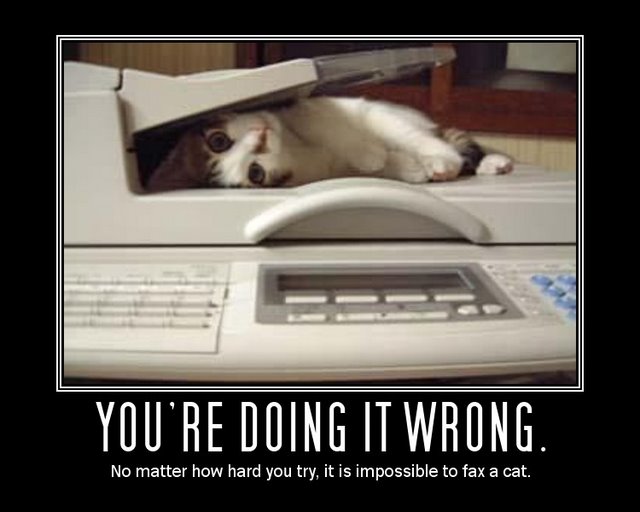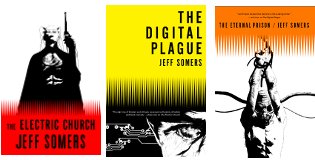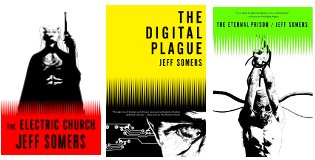This week The Somers Compound is rife with sick cats. Not terribly sick; intestinal parasites causing, um, some unfortunate events. This resulted in Your Humble Author hauling ~75 pounds of cat to and from the vet this week, and now I spend all my time trying to get 4 cats to eat pills twice a day. Have you ever tried to pill a cat? I might as well be building a time-machine with nothing but a Schwinn bicycle and some paper towels. It’s exhausting.
As a result, this post may ramble a bit. Or maybe the rambling is old age: Yet another birthday next week, after all, one more inevitable step towards the day my doctor tells me I can’t drink anymore or my liver will explode.
 Or, maybe my doctor will tell me I’m a prime candidate for a Google iLiver, because, folks, we’re living in the future, and don’t ever doubt it. All the trappings of a Sci-Fi future are here or getting there, with the possible exception of those fucking flying cars we’ve all been waiting for. Although if you told me Dick Cheney was zooming around Colorado in a flying car, I’d believe you. DAMN YOU CHENEY.
Or, maybe my doctor will tell me I’m a prime candidate for a Google iLiver, because, folks, we’re living in the future, and don’t ever doubt it. All the trappings of a Sci-Fi future are here or getting there, with the possible exception of those fucking flying cars we’ve all been waiting for. Although if you told me Dick Cheney was zooming around Colorado in a flying car, I’d believe you. DAMN YOU CHENEY.
Ahem, anyway, the rest of it’s coming: Dick Tracy two-way wristwatches? Pretty much done. The wired-up house that talks to you? Years away, tops. Cure for Cancer? Dunno, but again, if you told me that Dick Cheney. . .well, you get the idea. I picture Cheney in an underground bunker dressed like Blofeld from the Bond movies, playing with his water engine.
Of course, some of this stuff is already here and has simply taken on a form we weren’t expecting. Cyberspace, for example, did not arrive as a semi-physical place we could enter and fool around in like little godlings, or at least it hasn’t yet. But there is a cyber-space of sorts: Social Networks and the Internet. Sure, we’re not riding Tron cycles around and hacking world governments with our bare hands or at least digital simulacrums thereof, but we are, increasingly, living a lot of our lives online in these virtual communities. This isn’t news to anyone. Whereas when I was a kid in college we sat around our dorms all night drinking terrible beer and trying to top each other in misery, today you can do that without ever leaving Mom’s house.
Of course, like everything else, I am doing it wrong.
Social Networks are supposed to bring people together in a convenient way, right? The idea being that you can stay in touch with friends and family who are far away and, presumably, far too busy to stay in touch with you physically. What I actually use it for is passive entertainment, snarky comments on people’s activities, and an excuse to never actually contact anyone, since I can just leave a 10-word insult on their profile and run away, giggling.
You’re also supposed to use things like Facebook for self-promotion, natch. Plenty of readers have friended me on Facebook and I’m happy to have them – all you have to do is tell me you like my books, and I’ll friend you immediately and then ask you for a loan. But I don’t do that right either, because I never post anything there or have any useful materials up there for folks.
I am forever doing it wrong. This is not new. Folks who know me well are just shaking their heads in resignation. Even twitter, which is 140 characters of simplicity, I’ve managed to do wrong: All I post are insane monologues that, read out of context and split up, must look like the deranged mutterings of an inmate.
And now I must stop as a cat is sitting on my keyboard, looking stern.



